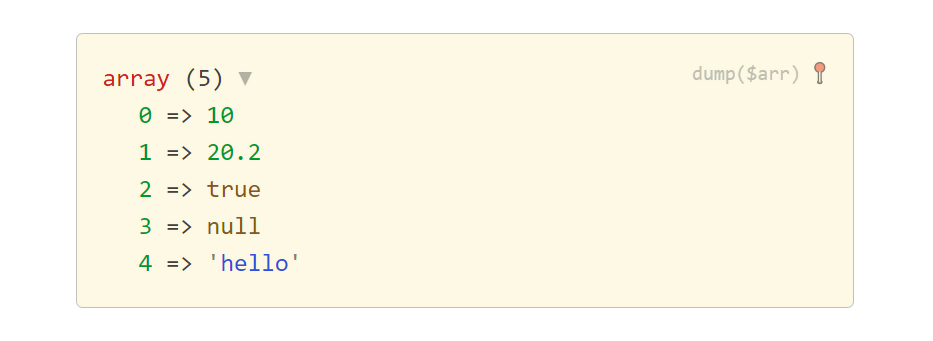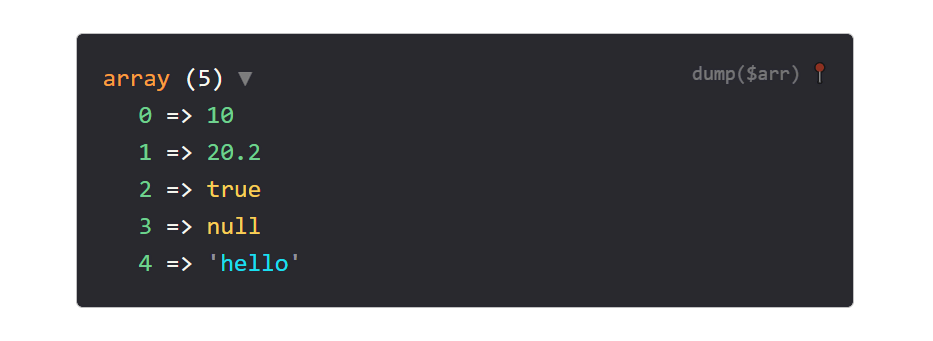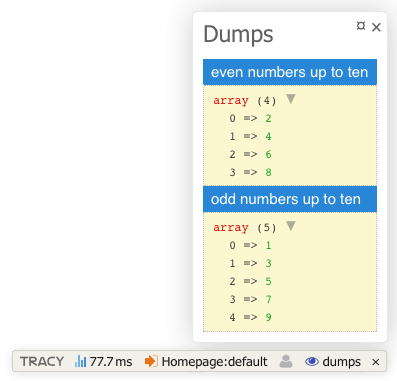Dumping Variables
Every debugger is familiar with the var_dump function, which prints detailed information
about a variable. Unfortunately, its output lacks HTML formatting and merges into a single line, not to mention HTML escaping
issues. In practice, it's necessary to replace var_dump with a more convenient function. That function is
dump().
$arr = [10, 20.2, true, null, 'hello'];
dump($arr);
// or Debugger::dump($arr);
generates the output:

You can change the default light theme to dark:
Debugger::$dumpTheme = 'dark';

You can also change the nesting depth using Debugger::$maxDepth and the length of displayed strings using Debugger::$maxLength. Naturally, lower values speed up rendering.
Debugger::$maxDepth = 2; // default: 3
Debugger::$maxLength = 50; // default: 150
The dump() function can display additional useful information. The constant
Tracy\Dumper::LOCATION_SOURCE adds a tooltip with the path to the file where the function was called.
Tracy\Dumper::LOCATION_LINK provides a link to that location. Tracy\Dumper::LOCATION_CLASS adds a
tooltip to each dumped object showing the path to the file where its class is defined. These constants are set in the
Debugger::$showLocation variable before calling dump(). To set multiple values simultaneously, combine
them using the | operator.
Debugger::$showLocation = Tracy\Dumper::LOCATION_SOURCE; // Sets only the display of the call location
Debugger::$showLocation = Tracy\Dumper::LOCATION_CLASS | Tracy\Dumper::LOCATION_LINK; // Sets both the link display and the path to the class
Debugger::$showLocation = false; // Disables the display of additional information
Debugger::$showLocation = true; // Enables the display of all additional information
Practical alternatives to dump() are dumpe() (dump & exit) and bdump(). The latter
allows us to dump variable values in the Tracy Bar panel. This is very convenient, as the dumps are separate from the page layout,
and we can also add a title to them.
bdump([2, 4, 6, 8], 'even numbers up to ten');
bdump([1, 3, 5, 7, 9], 'odd numbers up to ten');
